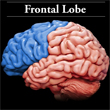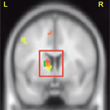Tuesday, 7 January 2014
Human Frontal Cortex Differs Even Genetically

The basic goal of many neuroscientific studies is to determine what makes human brains so different from those of other animal species, and in particular those of our cousins, the great apes. One such study was conducted recently by geneticist Genevieve Konopka and her team, and it yielded some very interesting findings about the frontal lobe of the brain.
One difference that scientists already knew about was that the frontal lobe accounts for a greater proportion of the total surface area of the cortex in humans than in other species (29%, compared with 17% in rhesus monkeys, 7% in dogs, and 3.5% in cats). But Konopka and her team studied differences in the expression of the genes for the various neurons that compose the frontal cortex. Specifically, the team compared the genes that are expressed (and therefore, active) in the frontal cortex of humans with those expressed in the frontal cortex of chimpanzees and macaques. The geneticists found that many of these genes are expressed differently in humans compared with these two other primate species. (more…)
Evolution and the Brain | Comments Closed
Wednesday, 17 October 2012
Learning How To Pique Curiosity

What is learning? What teaching methods are the most effective? Under what conditions do we remember information best? These are big questions, and the subject of continuing debate.
Neuroscientists continue to contribute relevant data to this debate, in particular as regards the conditions that help us learn and retain information best. In 2009, Min Jeong Kang’s research team published a brain imaging study that confirmed the importance of a well known but often under-utilized condition for enhancing learning: curiosity. (more…)
Memory and the Brain | Comments Closed







